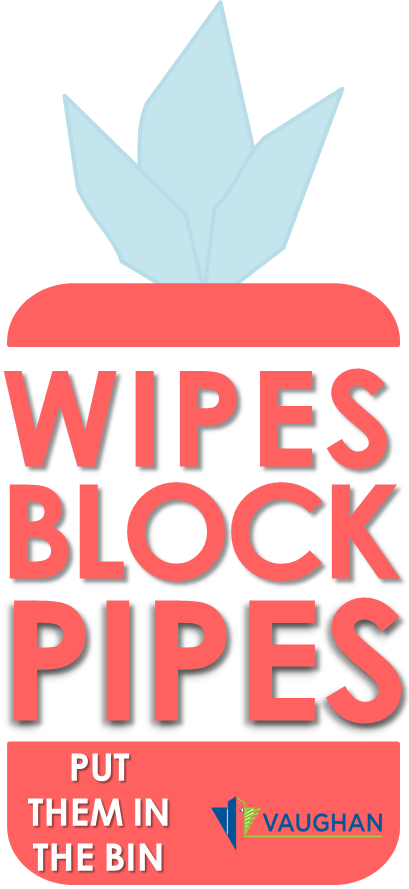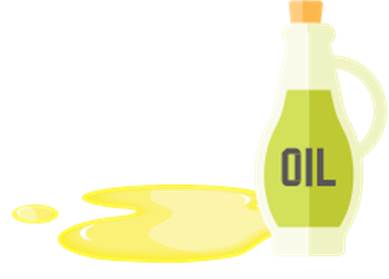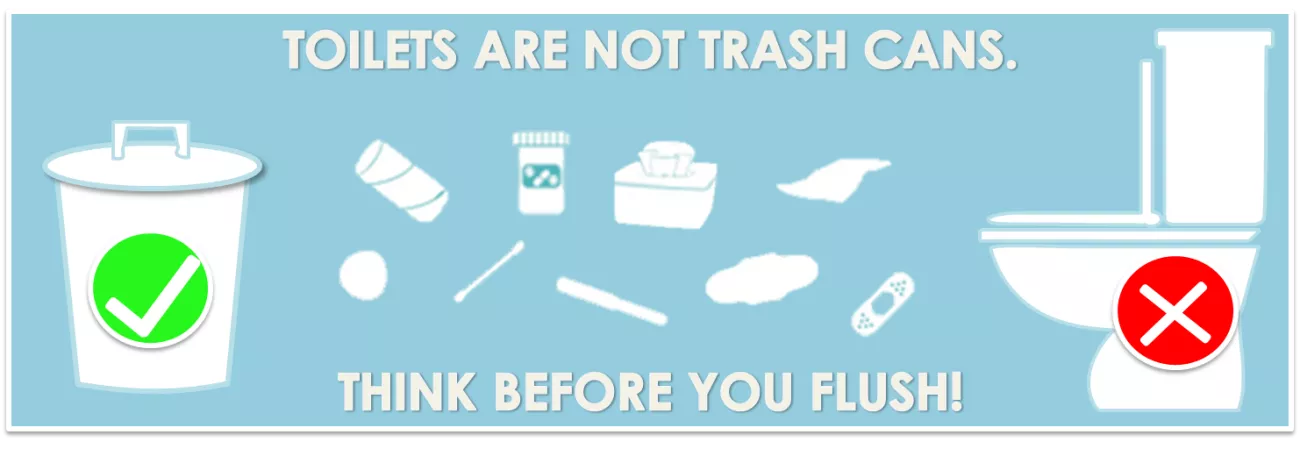What Not to Flush
There are two types of sewer systems in the city of Vaughan: sanitary (water from sinks, showers and toilets) and stormwater systems (water caught in sewers from storm water). The water from the sanitary sewer system gets treated at the wastewater treatment plant. However, the water from the stormwater system goes untreated and enters our local water source.
It is extremely important that everyday items such as hygiene products, wipes and waste do not get flushed or poured down either system. The City of Vaughan’s sanitary sewer system is not designed to dispose of anything beyond human waste, toilet paper and wastewater. Flushing any other materials down the drains at home can result in:
- damaged or blocked plumbing
- increased costs for the homeowner to clean and repair a flooded basement
- increased operation and maintenance costs for the City of Vaughan to clean and repair the City's sewer pipes or to fix equipment at a wastewater treatment plant.
To help keep the entire sewage system working well, do not dump down a drain or flush the following:
- hygiene products

- wipes/baby wipes – even those that say “flushable” can cause a problem
- tampons, sanitary pads
- condoms
- cotton swabs
- dental floss
- facial tissue
- paper towels
- fats, oils, grease
- pharmaceuticals
- household hazardous waste -- such as paints, pesticides and many cleaning products

Wipes block pipes
Wipes labelled and marketed as "flushable" should not be flushed down the toilet – they do not break down, but clump together and case blockages and backups. These wipes cause a range of problems in your home plumbing, the City’s sewer system and the wastewater treatment plant.
Wipes should always be put into the garbage instead.
The following is a list of items that cannot be flushed down the toilet. Alternative disposal options are provided. Check the City of Vaughan's What Goes Where? guide to find out how to dispose of different products.
| Garbage | Green bin | Local pharmacy | York Region's Environmental Centre |
|---|---|---|---|
|
|
|
|
Fat, oil and grease disposal (FOG)
These cooking by-products can harden inside pipes and create sewage backup in household plumbing.
When FOG meets other items in the sewer system that should not be flushed, it can form large clumps or balls, causing major sewer blockages. To help avoid this, use paper towel to soak up oils and grease and dispose of them in the green bin.
Household hazardous waste
Avoid disposing of household hazardous waste (engine oil, paints, solvents, etc.) down drains or toilets.
These materials could have serious, negative impacts on the wastewater treatment plant, the sewer infrastructure and the environment. Visit the York Region's Environmental Centre for more information on how to properly dispose of these materials.
Pharmaceuticals
Prevent pharmaceuticals from infiltrating surface water and drinking water. Bring unused or expired pharmaceuticals to a local pharmacy or disposed them where household hazardous waste and special items are disposed of.

